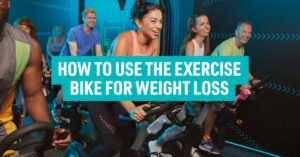In today’s fast-paced world, it’s no surprise that many of us seek quick solutions to achieve our weight loss goals. From crash diets to trendy supplements, the promise of rapid results can be enticing. However, the quest for speed can often lead to disappointment and even harm.
In this blog post, we’ll explore the concept of fast weight loss, debunk common myths, and provide practical tips for achieving sustainable results.
The Truth About Fast Weight Loss:
Before we delve into the fastest ways to lose weight, it’s essential to understand the truth behind the hype. While it’s possible to shed pounds quickly through extreme measures like severe calorie restriction or excessive exercise, these methods are not only unsustainable but can also be detrimental to your health. Rapid weight loss often leads to muscle loss, nutrient deficiencies, metabolic slowdown, and rebound weight gain once normal eating habits resume.
The Fastest Healthy Approach:
So, what’s the fastest way to lose weight without compromising your health and well-being?
The answer lies in adopting a balanced and sustainable approach that focuses on long-term lifestyle changes rather than quick fixes. Here are some key strategies to consider:
- Focus on Nutrition: Instead of slashing calories or following restrictive diets, prioritize nourishing your body with whole, nutrient-dense foods. Choose a variety of fruits, vegetables, lean proteins, whole grains, and healthy fats to fuel your body and support overall health.
- Practice Portion Control: Pay attention to portion sizes and avoid mindless eating. Use smaller plates, measure portions, and listen to your body’s hunger and fullness cues to avoid overeating.
- Stay Hydrated: Drink plenty of water throughout the day to stay hydrated and support optimal metabolism. Sometimes thirst can be mistaken for hunger, leading to unnecessary snacking.
- Move Your Body: Incorporate regular physical activity into your routine, including cardio, strength training, and flexibility exercises. Aim for at least 150 minutes of moderate-intensity exercise per week to support weight loss and overall health.
- Get Adequate Sleep: Prioritize quality sleep, as insufficient sleep can disrupt hunger hormones and increase cravings for unhealthy foods. Aim for 7-9 hours of sleep per night to support weight loss and overall well-being.
- Manage Stress: Practice stress-reducing techniques such as meditation, deep breathing, yoga, or spending time in nature. Chronic stress can lead to emotional eating and sabotage weight loss efforts.
- Set Realistic Goals: Instead of focusing on rapid weight loss, set realistic and achievable goals that prioritize overall health and well-being. Celebrate non-scale victories such as increased energy, improved mood, and better sleep.
- Understanding Rapid Weight Loss: Rapid weight loss typically refers to losing a significant amount of weight in a short period, often through extreme measures like crash diets, very-low-calorie diets, or excessive exercise. While these methods can lead to quick results on the scale, they often involve water weight loss, muscle loss, and may not result in sustainable fat loss.
- Crash Diets and Fad Diets: Crash diets involve drastically reducing calorie intake or eliminating entire food groups to induce rapid weight loss. Examples include the cabbage soup diet, juice cleanses, or the grapefruit diet. While these diets may lead to quick initial weight loss, they are often unsustainable in the long term and can lead to nutrient deficiencies, metabolic slowdown, and rebound weight gain.
- Very-Low-Calorie Diets (VLCDs): VLCDs typically involve consuming fewer than 800 calories per day and are often used under medical supervision for people with severe obesity or weight-related health conditions. While VLCDs can lead to rapid weight loss, they should only be undertaken under close medical supervision due to the risk of nutrient deficiencies, gallstones, and other health complications.
- Excessive Exercise: Some individuals may attempt to lose weight quickly by engaging in excessive exercise, often combined with severe calorie restriction. While exercise is an essential component of weight loss, excessive exercise without adequate rest and recovery can lead to overtraining, injuries, and burnout.
- Health Risks and Considerations: It’s essential to recognize the potential health risks associated with rapid weight loss, including nutrient deficiencies, muscle loss, gallstones, electrolyte imbalances, and metabolic disturbances. Crash diets and extreme measures can also negatively impact mental health, leading to feelings of deprivation, guilt, and frustration.
- Sustainable Approaches to Weight Loss: While rapid weight loss may be tempting, it’s crucial to prioritize sustainable approaches that promote long-term health and well-being. This includes adopting healthy eating habits, engaging in regular physical activity, managing stress, getting adequate sleep, and setting realistic goals.
- Focus on Health, Not Just Weight: Instead of solely focusing on the number on the scale, prioritize overall health and well-being. Aim to nourish your body with whole, nutrient-dense foods, engage in enjoyable physical activities, and cultivate a positive mindset around food and body image.
Conclusion:
In summary, while it’s possible to lose weight quickly through extreme measures, such as crash diets or excessive exercise, these methods are often unsustainable and can pose risks to your health. Instead, focus on adopting sustainable lifestyle changes that promote overall health and well-being, leading to long-term success in weight management.
While the allure of fast weight loss may be tempting, it’s essential to approach it with caution and prioritize your long-term health and well-being. By adopting a balanced and sustainable approach that focuses on nourishing your body, staying active, and practicing self-care, you can achieve lasting results and enjoy a healthier, happier life. Remember, slow and steady wins the race when it comes to weight loss.







